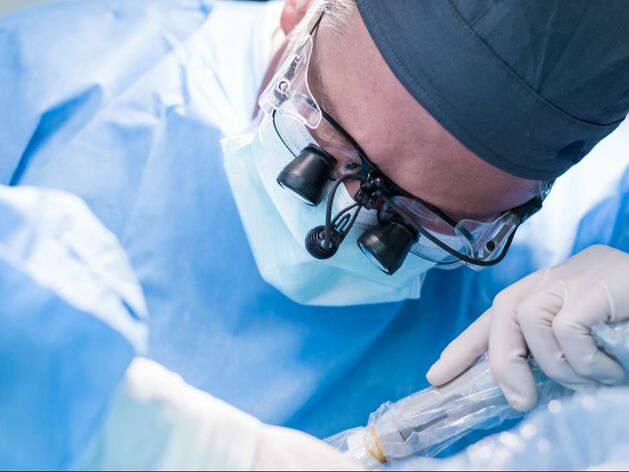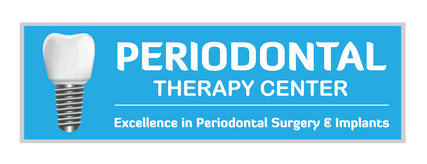Our Blog |
|
Missing a tooth when you are 6 years old is cute, right? If you are older and the tooth is a permanent tooth, it’s not cute and the consequences can be serious. Losing a tooth sometimes can’t be avoided. Dental injury, infection or damage can create a need for a tooth extraction. Depending on the situation, having an extraction can be a welcome relief of excruciating toothache pain. Once your extraction site has healed, the missing tooth (or teeth) can cause problems.
Obviously having missing teeth can affect your appearance. Even if the missing tooth is not visible when you smile, the skin around your mouth may not be supported and cause sagging which can make you appear older. Having a missing tooth can cause you to feel less confident, smile less often, or feel depressed. It will affect the way you chew your food and might affect your speech. Missing teeth create a higher risk for periodontal disease or infection and can spread to other parts of the body. Tooth loss has been linked to heart disease, diabetes, and kidney disease. The good news is missing teeth can be replaced! At Periodontal Therapy Center, Dr Jeffrey Hameroff, evaluates each patient’s smile, bone and supporting tissue before presenting treatment options. If you need a tooth replacement, a Dental Implant treatment maybe your best option. We take most dental insurance plans and have financing options available. Don’t let a missing tooth affect your confidence or your health!
0 Comments
For many patients, having a dental procedure done causes high anxiety and great fear, even if the procedure is minor. When the dental work is extensive or requires surgery, sedation is normally required for the safety as well as the comfort of the patient. But not all dentists can perform IV or oral sedation, so be sure to ask if you are an anxious patient or you know you will be having extensive work done.
So what is required of the dentist to provide this care for patients? First of all, your dentist, periodontist, or oral surgeon must have additional training for the license to perform IV Sedation. The training is completed at an accredited university. In addition to the Dentist training and certification, the dentist, dental assistants and staff must be certified in ACLS (Advanced Cardiac Life Support) and BLS (Basic Life Support) and be recertified annually. There are requirements for the dental office as well. The facility will need patient safety and monitory equipment, including CO2 Monitors, Pulse Oximeters, and Blood Pressure Monitors. And this equipment is checked and calibrated regularly. When performing any dental procedure, and particularly when IV Conscious Sedation will be used, patient safety is the primary issue and concern. At Periodontal Therapy Center, we offer IV Sedation for our patients who need it. Our Periodontist, Dr Jeffrey Hameroff, has the training and has been performing sedation for many years. Our staff is also trained, certified, experienced, and our office is state of the art. Our patients are in good hands when they need to be sedated! If you would like to learn more about our IV Conscious Sedation services, please call us at 352-596-1771 or visit the IV Sedation page on our website at https://www.periodontaltherapycenter.com/sedation.html Planning for the process of improving your smile is very important. In the initial consultation at Periodontal Therapy Center, we will help you understand every component of the treatment, the number of treatment visits, the time it will take, what to do before each visit, and what to do after each procedure. One of the most important commitments we need from our patients is to eliminate smoking after the procedure to ensure the best result and minimize the risk of complications.
In clinical trials, smoking has been identified as the leading cause of post procedure complications or a less than optimal result. In fact, smoking is considered the highest risk factor for complications after any surgical procedure. And there are reasons for that.
SPECIAL NOTE: If you use a Vape, chewing tobacco, or nicotine gum you should stop using before dental procedures too. Regardless of how the nicotine is being delivered, the risks are the same! Whether you are coming to us for periodontal therapy, deep tissue cleaning, surgery or dental implants; smoking should be eliminated to minimize the risk of complications and give the best results. How long will you need to stop? We recommend that you stop smoking before the procedure. The longer the healing process will be after the procedure, the more time you should be smoke free before. As an example, if you are having dental implants, we recommend you stop smoking a month before and don’t smoke for at least 3 months after. We understand that is a big thing to ask but your new smile is a big investment of your time and money. Why not give yourself the best chance for an optimal result? For more information, please call our office. Our staff is standing by to answer your questions and schedule a consultation with Dr Hameroff. One of the most important steps in the dental implant process is planning. Preparing your teeth and surrounding gum and bone tissue for the implant is critical to the successful finished product – your great smile! During the initial exam, the Periodontist will listen as you describe what you want for your smile. Once we understand the desired outcome, we will conduct a thorough exam and x-ray of your mouth and discuss options with you.
The big question for almost every patient is “how long will it take?” No one wants to be without teeth for a long period of time and let’s face it, we want instant gratification. The amount of time it takes to complete the process varies with each individual and how much pre-implant surgical work may need to be done prior to placement of the implants, along with the amount of healing time needed between steps. We don't want the process to take any longer than necessary but we do put your health and well-being first. Rushing the process can put our patients at risk for infection or improper placement that could lead to additional time and cost. If you are thinking about dental implants to improve your smile, give us a call for a consultation and recommendation for your treatment plan. At Periodontal Therapy Center, we will create a treatment plan that works for you and for your health in the shortest amount of time possible without risk. Trust your smile to us, call for your consultation and treatment plan today! As we discussed in our last article, the dental implant process is complex and requires skills beyond those of a normal general dentist. While general dentists are trained to do dental surgery, they have not had extensive exposure and training beyond the basic requirements to become a dentist. Only Periodontists or Oral & Maxillofacial Surgeons have completed post-graduate specialty training in surgery. The implant procedure is very complex and the doctor performing the procedure should be educated, trained, and have experience in all areas of periodontics to become an expert in the field of Dental Implantology. So how do you know if your dentist is qualified? It is hard to sort through the “implied expertise” you will find on-line and in the dental clinic advertisement to find the actual qualifications of the dental professional that you will entrust with your new smile. Many clinics and dentists will claim to be an expert “Implantologist.” The American Dental Association only recognizes 9 areas of dental specialty, and implantology is not one of them. (You can find the complete list on the ADA website here) Most of the dentists providing implants have completed post-graduated training programs where they learn the skills needed to give their patients the best possible care and results. Along with the training in Implantology, your dentist should be skilled in sedation, potentially bone grafting and treatment of gums and surrounding tissue. And for the best experience, look for a dental professional who has a highly trained and experienced staff too. To be sure your Dentist is truly skilled here are a few questions to ask:
For more information on Dentist Qualifications for Dental Implants, you can read this article: Dental Implants have become a great alternative to dentures for restoring a beautiful, natural looking smile. Implants are more comfortable than dentures, last longer, and look like your natural teeth. While Dental Implants have been growing in popularity, the media has been flooding our televisions, in-boxes, social media feeds, and internet searches with information about them. Some of this information might be misleading and confusing. The next few articles we post here, we will review some of the information out there and try to help you, our patients, have a better understanding before making important decisions about your smile and your dental health. You may have heard: A general dentist can perform the oral surgery required to place dental implants and there are many general dentists that advertise dental implants. It is true that any dentist can legally perform the oral surgery required for the placement of dental implants. The reality is that the surgical training that a general dentist receives is substantially less than the training a periodontal specialist or oral and maxillofacial surgeon completes. In fact, Oral and Maxillofacial Surgeons and Periodontists are the only surgical specialists recognized by the American Dental Association (ADA.) The additional 3 to 4 years of residency training during which a good deal of time is spent on anesthesia training and diagnosing and treating potential complications. While most dental implant procedures are performed routinely, it is comforting to know that when you are working with a licensed Periodontist, that extra training is on your team! Dr Jeffrey Hameroff is the only licensed Periodontal Specialist in Hernando County. In addition to his resident specialty training, Dr Hameroff has completed additional training for IV Conscious Sedation and extensive studies in the field of Oral Implantology. For more information on Dr Hameroff’s qualifications, visit our website and be sure to click the link to review his complete CV. https://www.periodontaltherapycenter.com/staff.html Read more about Doctor Qualifications for Implant Dentistry here: http://thedentalimplantguide.org/dental-implants/myths-misconceptions/doctor-qualifications/ If you have dental insurance and haven't used all that you are entitled to, now is the time to think about taking advantage before it's too late. Those unused benefits don't roll over to next year so if you don't use them before December 31st, they will be gone. Here are some ways to use your benefits now and possibly save some money in the process!
At some point most of us face the question of what to do about those extra teeth in the back of our jaw called, wisdom teeth. For many of us, our dentist informs us of their existence and they are usually causing some crowding or other problems with our bite or smile. For some, wisdom teeth can be a serious problem that, left untreated, can cause impaction, infection or worse. Almost always, the wisdom teeth should be extracted either with a normal extraction process or sometimes by surgical extraction. Surgery is only needed if its impacted or infected or if there are other issues that prevent a simple. Often times wisdom teeth are at an angle, multi rooted under the skin or locked in by the adjacent tooth. Surgical extraction is a process to expose the tooth, section it and remove the tooth with minimal trauma. Even with the careful removal of the tooth risk are present. Swelling is normal, discomfort, infection, and even possible nerve damage. With this said make sure you get an evaluation and treatment from a qualified dental surgeon. We perform both simple and surgical extractions here at Periodontal Therapy Center. If you are experiencing pain from your wisdom teeth or if your regular dentist has suggested you have your wisdom teeth extracted, please give us a call to schedule an evaluation. Playing the waiting game with a painful wisdom tooth can result in severe pain, infection,, or other health problems. |
AuthorsArticles provided by Dr. Hameroff, staff, and marketing team members. Articles are intended to bring our patients and friends relevant information regarding dental health. Archives
February 2022
Categories |
|
Periodontal Therapy Center
Dr Jeffrey Hameroff, DDS Periodontist 7320 Forest Oaks Blvd. Spring Hill, FL 34606 352.596.1771 [email protected] |
Copyright Periodontal Therapy Center 2018 Website by Sales Up Solutions, LLC








 RSS Feed
RSS Feed
